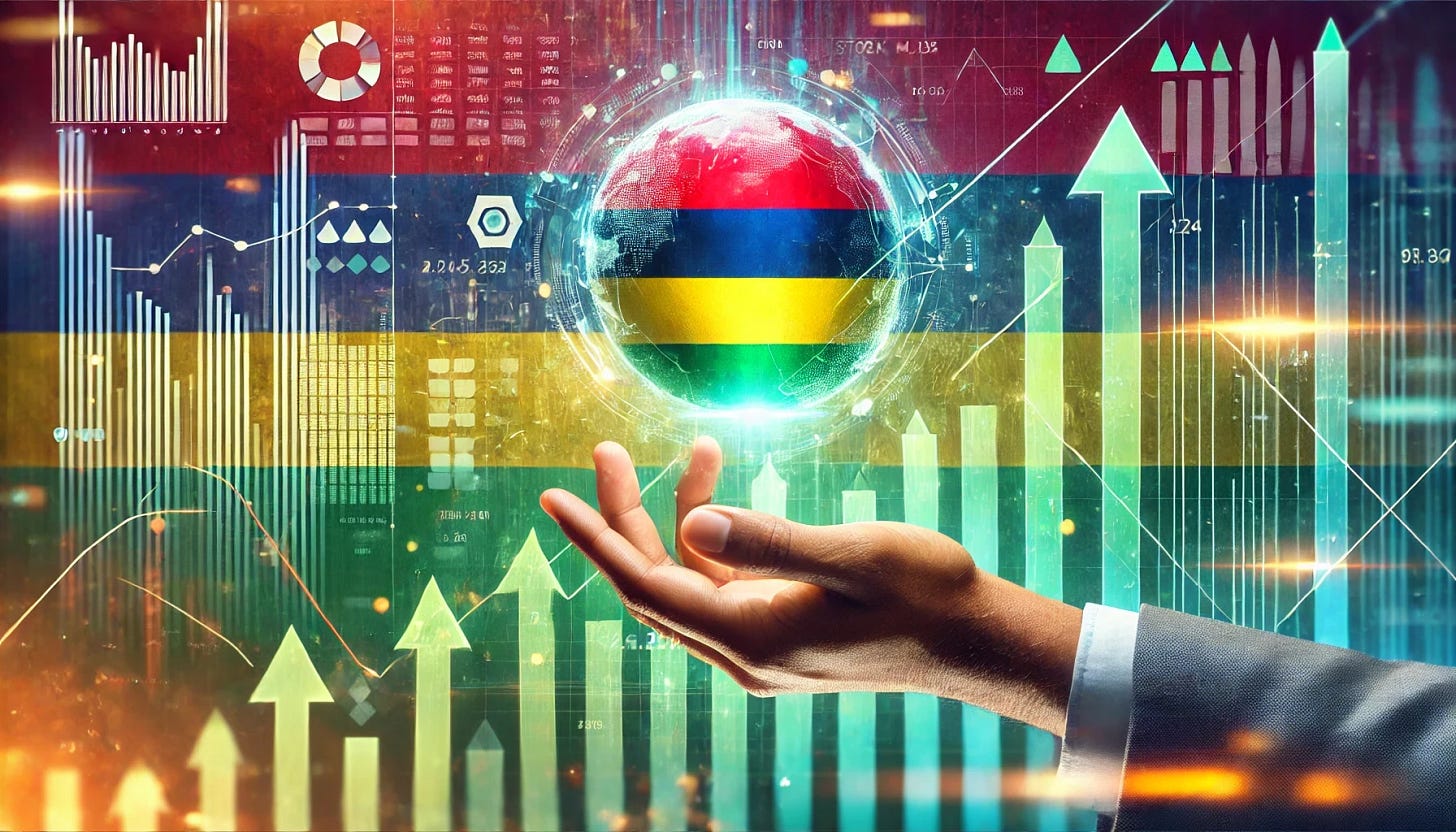Unlock Your Financial Potential! Connect with us for a one-on-one discussion. Click now to schedule your introductory call.
How do you like the content? Please let us know in the comments below
Mauritius, a picturesque island nation in the Indian Ocean, is renowned for its stunning beaches, diverse culture, and strategic economic initiatives. With a stable political environment, it has transformed into a vibrant hub for tourism, technology, and finance. This newsletter delves into Mauritius’s economic evolution, highlighting emerging sectors, investment potential, and government policies shaping its growth.
Economic Evolution: From Sugar to Services
Mauritius, once heavily reliant on sugar exports, has transformed itself into a diversified economy. Today, the island nation is renowned for its strong services sector, robust tourism, finance, and emerging technology industries. This shift from agriculture to a service-oriented economy underscores Mauritius’s strategic evolution into a modern and resilient economy.
Current Economic Environment
Mauritius's economy grew by 7.0% in 2023, with sectors like tourism, construction, and manufacturing driving the recovery. However, GDP growth is projected to slow to 4.9% in 2024 and 3.7% in 2025 due to anticipated weaker global demand. Inflation, which peaked at 10.8% in 2022, dropped to 7.0% in 2023 and is expected to decrease further to around 5.8% in 2024 and 5.0% by 2025. The services sector remains crucial, while construction growth will moderate from the 37.4% surge in 2023.
Key Industries: Cornerstones of the Mauritian Economy
Services Sector - Tourism, Financial Services, and ICT: The services sector dominates Mauritius's economic landscape, accounting for over 70% of the GDP. Key contributors include tourism and financial services. The tourism sector, vital to the economy, has rebounded robustly post-pandemic, driven by increased international arrivals and renewed interest in the island’s luxury offerings. The financial sector, characterized by a robust regulatory framework, plays a significant role as Mauritius positions itself as a financial gateway to Africa.
Manufacturing Sector - Textiles and Agro-Industry: Manufacturing contributes about 18% to the GDP, with a strong focus on textiles and the agro-industry. The Made in Moris initiative emphasizes local quality and sustainability, aiming to increase the global competitiveness of Mauritian products. Companies like Ciel Textile Ltd are leaders in this sector, leveraging innovation and quality to tap into international markets.
Construction Sector - Urban Development and Infrastructure: Construction is another significant sector, driven by both private and public investments. Projects focusing on residential, commercial, and tourism infrastructure are abundant. Notable players, such as Gamma Construction Ltd, are expanding their portfolios to cater to growing domestic and international demands for high-quality infrastructure.
Agriculture Sector - A Niche Yet Important Contributor: Although agriculture now accounts for a small fraction of the GDP, the sector remains crucial for rural employment and food security. The emphasis has shifted to more sustainable practices, with sugar still being a notable export. Companies like Omnicane Limited, with diversified agricultural operations, play a critical role in this sector.
Emerging Sector and Government Support
An emerging sector in Mauritius with transformative economic potential is the Information and Communication Technology (ICT) sector. This sector is rapidly growing and aims to position Mauritius as a regional tech hub. By leveraging a skilled workforce in software development, fintech, and digital innovation, the ICT industry contributes significantly to the country’s move towards a knowledge-based economy.
Key Examples & Data
The ICT sector saw a robust 5.1% growth in recent years, and projections suggest it will continue to expand, with ICT exports expected to reach $144.6 million by 2026.
Fintech is leading digital transformation, enhancing financial inclusivity through mobile banking and peer-to-peer platforms, particularly in underserved areas.
Government Support
Digital Infrastructure Investment: The government has established technology parks and data centers, enhancing digital infrastructure to attract tech companies and startups.
Tax Incentives & Grants: Mauritius offers tax breaks and grants to companies engaged in R&D, particularly in the tech sector, to encourage innovation.
Skills Development Programs: Investment in STEM education and targeted training initiatives are aimed at developing a tech-savvy workforce, crucial for supporting the ICT sector's growth.
Stocks to Watch Out For and Mauritius MSCI Index
SBM Holdings Ltd (SBM) | Financial Services - SBM is one of the largest banking and financial services groups in Mauritius, with international listings. It offers a range of banking products, including retail and corporate services, with a strategic focus on expanding its regional footprint.





